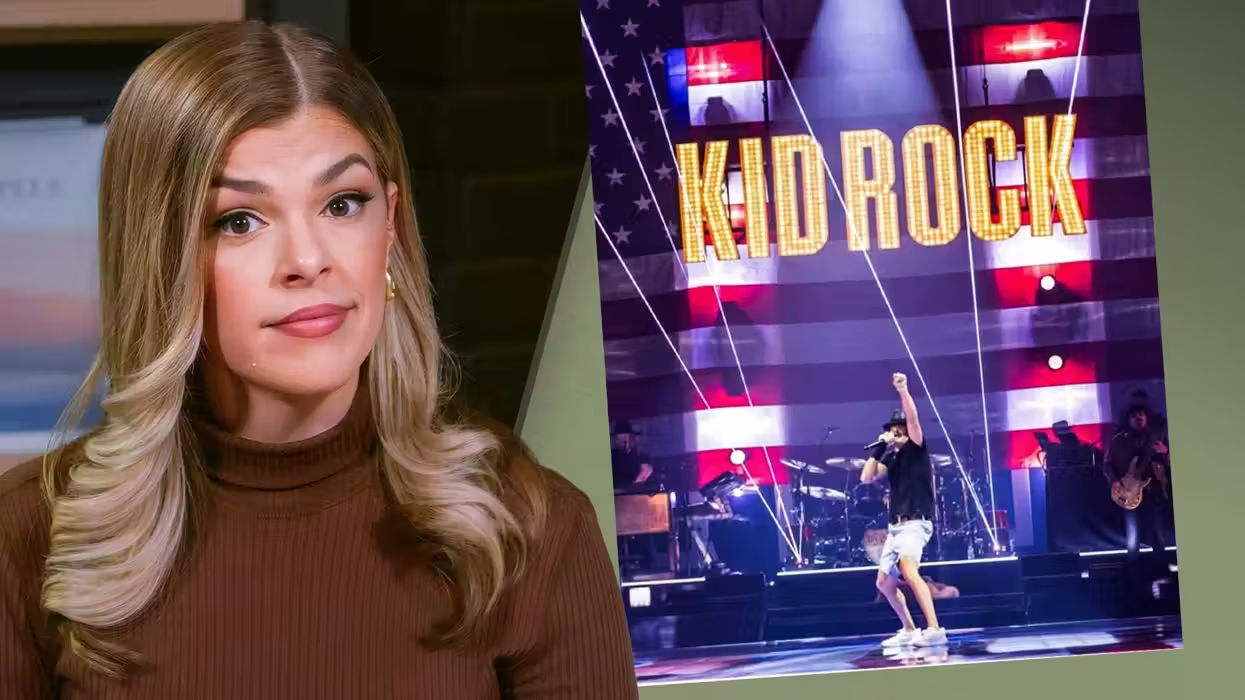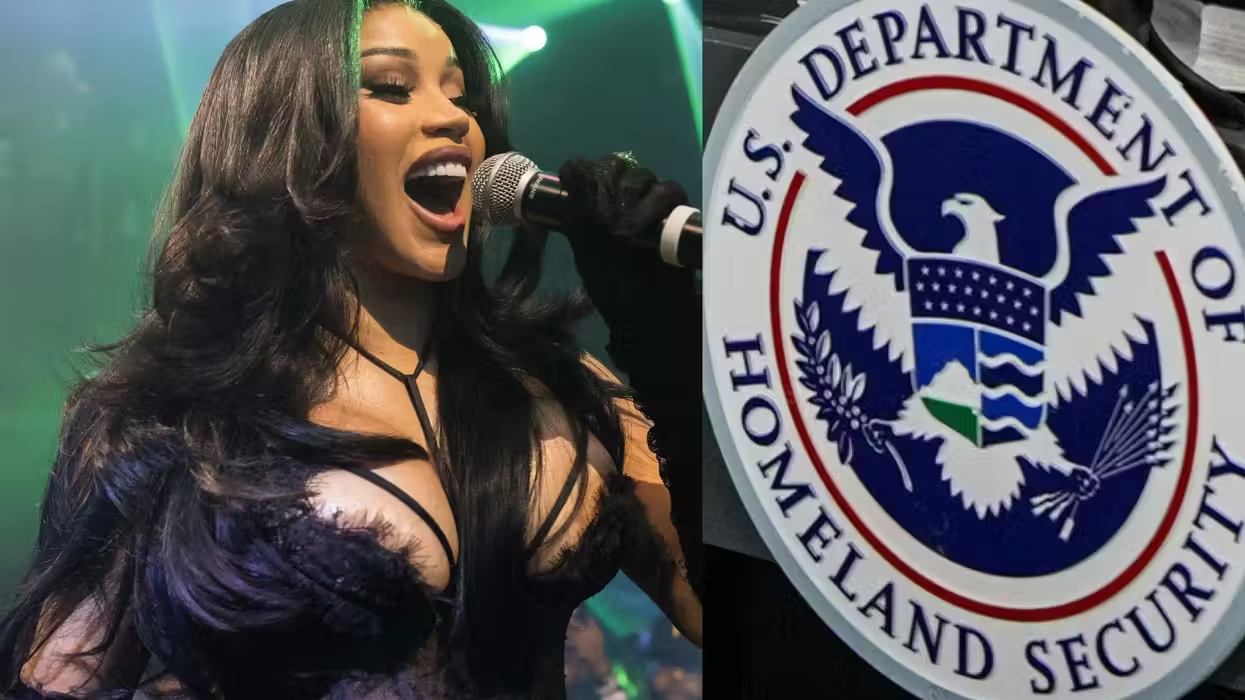
© 2026 Blaze Media LLC. All rights reserved.
Why Betting You'll Win Minorities on Social Issues Is the GOP Cargo Cult
December 13, 2012
 Rev. Delman Coates, senior pastor of Mt. Enon Baptist Church, Clinton, Md., left, Rev. Al Sharpton, president, National Action Network, center, and Rev. Amos Brown, senior pastor of Third Baptist Church, San Francisco, Calif., right, announce their support for the civil marriage of gay and lesbian couples during a news conference at the National Press Club in Washington, Friday, Sept. 21, 2012. The ministers urged Maryland residents to vote for Question 6 on the November ballot. (AP Photo/Cliff Owen)
Rev. Delman Coates, senior pastor of Mt. Enon Baptist Church, Clinton, Md., left, Rev. Al Sharpton, president, National Action Network, center, and Rev. Amos Brown, senior pastor of Third Baptist Church, San Francisco, Calif., right, announce their support for the civil marriage of gay and lesbian couples during a news conference at the National Press Club in Washington, Friday, Sept. 21, 2012. The ministers urged Maryland residents to vote for Question 6 on the November ballot. (AP Photo/Cliff Owen)
If you’ve heard the Social Conservative Minority Realignment Thesis once, you’ve probably heard it a hundred times. It goes as follows. Blacks and Hispanics have religious views more conservative than the average voter’s, yet today they overwhelmingly vote Democratic. If only they realized Republicans agree with them on issues like gay marriage and school prayer! The GOP somehow hasn’t gotten out the message that it’s the party truly in tune with religious values. Only by hammering away at social conservatism can the party win the black and Hispanic support that will ensure it majority status for years to come.
Here’s a typical example from the Dec. 4 Daily Caller. “As Republicans ponder how to win over Hispanics in future election cycles,” the article promises, “there may be a light at the end of the tunnel.” A polling firm that’s worked for former GOP speaker Dennis Hastert, it seems, recently surveyed 600 registered voters in Illinois with Hispanic surnames. It found, among other things, that “Fifty-one percent said they opposed legalizing gay marriage, compared to just 40 percent who favored legalization.”
So that’s the light at the end of the tunnel? Leave aside whether a 40-51 margin is really all that much of an imbalance. Conspicuously absent from the article is any evidence that the respondents were asked how likely it was that gay marriage (or the poll’s other topics, guns and abortion) would sway their votes, or trump all other issues.
Equally lacking was any context as to what a similar poll might have found five or ten years ago. If Hispanic support for gay marriage would have come in at, say, 25 percent then, but 40 percent now, you have to wonder whether the train in question is headed toward the light at the end of the tunnel, or perhaps back into the darkness.
Remember the stories about the cargo cults after World War Two? South Sea Islanders suddenly came in contact with strangers who brought airplanes laden with canned food and other good things. This was great, but then the strangers and their planes left and didn’t come back. For many years afterward, cultists would carry out rituals to attract the planes into returning. They cleared landing strips, crafted headphones from wood and antennas from bamboo, and trained would-be air controllers to wave in approaching planes. None of it worked, but the idea of luring the airplanes back was so exciting that they went on repeating the rituals for years.
We’ve now been hearing the Social Conservative Minority Realignment Thesis for at least twenty if not thirty years. It became popular around the 1980s, the era in which organized religious conservatives began throwing around major weight in the GOP. And after two decades or more we’re entitled to ask: does it work? For years, conservative politicos have been frantically clearing the runways and waving at every dot on the horizon. Shouldn’t the realignment planes have started landing by now?
The Daily Caller article came out a month after the November 2012 election. It did not mention how Hispanics actually voted in that election, namely by a crushing 3-1 margin for Obama over Romney, a wider margin than in past elections. Do we really think that a large bloc of voters who care deeply about social-conservative issues were unaware of the wide gulf between the stands taken by Barack Obama and Mitt Romney on those issues?
But perhaps Hispanics’ vote this year was overly swayed by immigration concerns, so leave them aside for now. What about black voters?
Well, those planes show no signs of landing either: only about 10 percent of black voters went Republican this year, one of the lowest figures ever. And as for whether the party could do better by targeting a social issues campaign to the portions of the black community with the strongest church attachments, consider – as a sort of real-life experiment – the vote in Prince George’s County, Maryland this year.
Leaders of the Maryland Republican Party had run a successful petition drive to put gay marriage on the November ballot, where it appeared as Question 6. They hoped this would drive a wedge between the state’s dominant Democratic Party and its black constituency: at 28 percent, Maryland has one of the nation’s most heavily black electorates, along with a fair number of Hispanics as well as other recent-immigrant groups. In particular, both sides expected that many voters would turn out against gay marriage in Prince George’s County, the D.C.-suburban county whose electorate is about two-thirds black (the rest being one-sixth Hispanic and one-sixth non-Hispanic white), in which theologically conservative black churches have played a leading role in politics for years. Indeed, the “battle for P.G.,” as it was called, tended to dominate the whole Question 6 campaign.
The contrast between the presidential candidates aside, the Maryland GOP underlined its appeal to social conservatives by nominating two of its most vocal opponents of gay marriage to challenge incumbent Democrats for the county’s two Congressional seats. Rounding out the ticket was a dynamic GOP Senate candidate, Dan Bongino, who while campaigning on a range of issues was the only clear social conservative in a three-way race against liberal incumbent Ben Cardin and a wealthy independent. Just in case any churchgoers in P.G. were not motivated to get to the polls by any of these attractions, the November ballot also included a casino expansion measure that many churches preached against.
On Election Day, Question 6 did not fare all that badly with Maryland black voters, falling short by a margin of about 46-54. The result was that the vote on the question in P.G. came in at a near-tie of 49 to 51 percent, with the deficit among the county’s black voters just about balanced off by a strong majority among whites. (The county’s whites include a scattering of Republicans and conservative Democrats, especially in outlying rural precincts, who are however outnumbered by strongly liberal whites in towns like College Park and Hyattsville and by moderate Democrats in towns like Bowie and Laurel.)
 MD Governor Martin O'Malley Signs Civil Marriage Protection Act after MD Question 6 Passes (Facebook)
MD Governor Martin O'Malley Signs Civil Marriage Protection Act after MD Question 6 Passes (Facebook)
So how’d the Republicans do? Mitt Romney got a mere 9.15 percent in P.G., heavily drawn from white parts of the county. Perhaps the presidential race does not make a fair test because of President Obama’s race. But the GOP Congressional candidates fared no better in black precincts, where they drew poor single digits. In the Senate race, meanwhile, the socially conservative Republican, who was carrying 13 of 23 counties statewide, pulled only 6.55 percent – and that includes his vote from the white areas.
Let’s give the Social Conservative Minority Realignment Thesis its best shot, and look at the ten P.G. precincts that voted most heavily (58+%) against Question 6. Three of these 10 precincts were from areas of the county with many whites (two at the county’s rural southeast fringe, one in Lanham) and as one would expect, Republicans did okay there (though still not well enough to win). The other seven precincts were largely black; in other words, of all the largely black precincts in Prince George’s County, these were the seven most strongly opposed to gay marriage. If any movement toward GOP realignment were gathering force among socially conservative blacks, you’d expect to pick up signs of it in these seven precincts. The precincts voted as follows: for Romney, 5, 3, 3, 6, 3, 5, and 10 percent; and for the GOP’s senate candidate, 4, 3, 3, 3, 2, 4, and 7 percent. (The last of the 7 precincts is not far from the University of Maryland, which may explain its wider range of voting diversity.)
In other words, the black precincts in P.G. with the strongest inclination toward social conservatism, as measured by their sentiments on gay marriage, gave Republican candidates a vote percentage more often associated with Libertarian candidates and rounding errors.
In a November 9 RedState posting, analyst Erick Erickson advances his own version of the fallacy:
Mitt Romney won about a quarter of the Hispanic vote and a tenth of the black vote.These numbers may not sound like much, but in close elections they matter. A sizable portion of those black and Hispanic voters voted GOP [because of social issues] … You throw out the social conservatives and you throw out these Hispanic and black voters.
Do you? Really? And without getting anyone else in exchange?
Imagine what it would mean to draw significantly less than 10 percent of the black vote – or, in the case of several of those most-socially-conservative black precincts in P.G., less than 3 percent. Would the party have to get into negative-vote territory?
Erickson takes as a given that if the GOP chose to campaign on other issues it would lose many of the few minority voters it attracts. Is that so? Suppose the party were to drop its odd view of minority voters as motivated mostly by (and in favor of) social conservatism. It might instead choose to appeal to them on the same grounds as other citizens; that is, by emphasizing questions of fiscal soundness, better grasp of national defense and the needs of small business, and other historic themes from the long-past Nixon-Eisenhower era when Republicans used to do better with the minority vote. Alternatively (or in addition), it might resolve to listen to what minorities actually say about why they view the parties the way they do, perhaps with a special ear to the voices of younger voters who might be more open to rethinking old political habits.
I don’t know whether the stories about South Sea Island cargo cults are exaggerated, but even if they’re not, the islanders still had more logic on their side than Republicans. At least for them the planes landed once.
Want to leave a tip?
We answer to you. Help keep our content free of advertisers and big tech censorship by leaving a tip today.
Want to join the conversation?
Already a subscriber?
more stories
Sign up for the Blaze newsletter
By signing up, you agree to our Privacy Policy and Terms of Use, and agree to receive content that may sometimes include advertisements. You may opt out at any time.
Related Content
© 2026 Blaze Media LLC. All rights reserved.
Get the stories that matter most delivered directly to your inbox.
By signing up, you agree to our Privacy Policy and Terms of Use, and agree to receive content that may sometimes include advertisements. You may opt out at any time.






